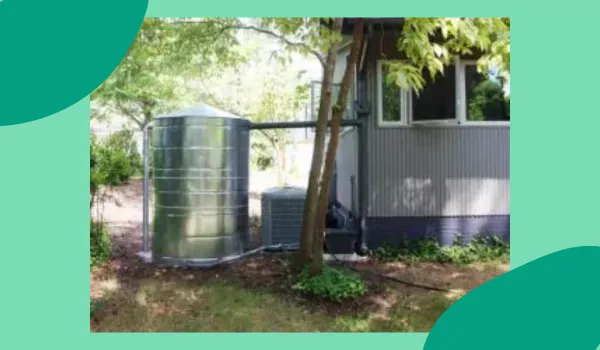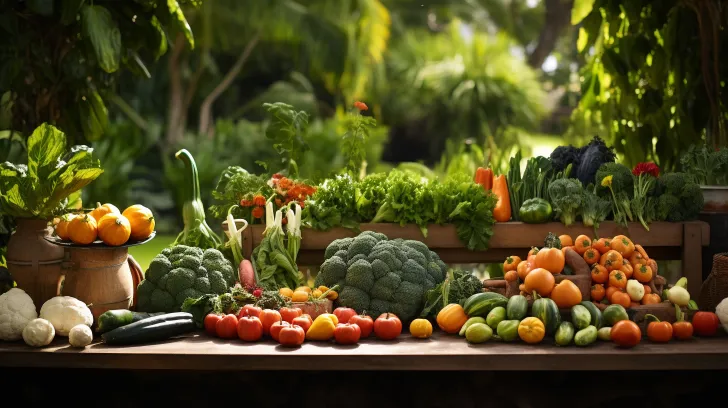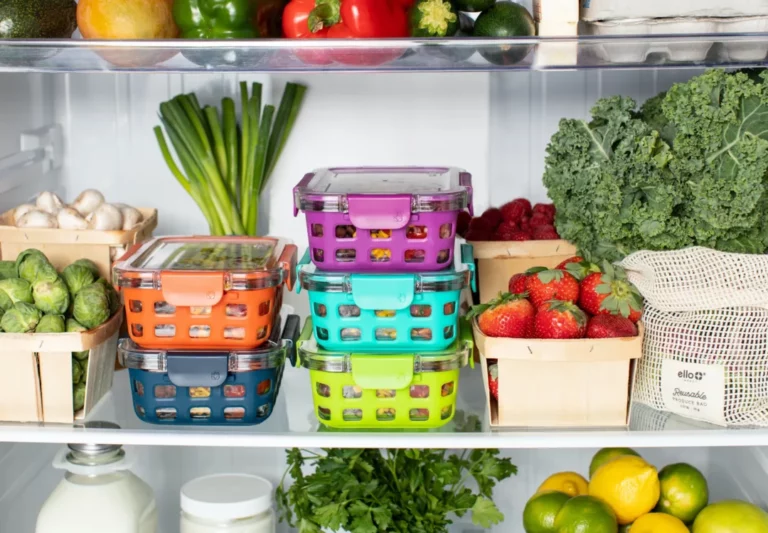Zero Waste Living: Tips for a More Sustainable Lifestyle
Want to live a more sustainable lifestyle and reduce your impact on the planet? Learn how to live zero-waste and join the movement to protect the environment!
Are you done with generating waste each day and wish to live a more eco-friendly life? Here are some suggestions to assist you in transitioning to a zero-waste lifestyle:
- Say no to single-use plastics. Bring along your reusable bags, water bottles, and coffee cups when you go out.
- Compost your food scraps and garden debris. Start a compost bin or try vermicomposting with worms.
- Shop in bulk. Bring your containers when shopping for groceries and fill them with dry goods, spices, and even liquids like oil and vinegar.
- Avoid packaged and processed foods. Choose fresher, whole foods that don’t need a package or have minimal packaging.
- Repurpose and recycle. Get creative with repurposing items you no longer need or recycle them properly.
Incorporating these practices into your life will help you reduce your waste and build a more sustainable lifestyle.
Mindset Shifts for Zero Waste Living

Zero waste living, overwhelming? Not anymore! With a few mindset changes, you can live sustainably. Start by changing how you interact with your environment and what you consume. Here are tips to help you get started:
Understand the benefits of zero waste living
Grasping the benefits of zero-waste living is key to alter your way of thinking and practice a sustainable lifestyle. This type of living does good to the environment and your life. It helps lower the amount of waste ending up in landfills, safeguards marine life and natural resources, and conserves water and energy.
Get Your Hand on Your Eco-Friendly Living Starter Guide!
Also, zero-waste living helps you save money by cutting down on single-use products and their packaging.
Here are some tips to begin a zero-waste way of life:
- Prefer reusable stuff over disposable items
- Shop in bulk and bring your own containers
- Compost food waste
- Use public transport, bike or walk instead of driving a car
By taking these small steps, you can make a big difference to the environment and live sustainably.
Recognize your current waste output
Take a step towards a zero waste lifestyle. Start by recognizing your current waste output. Make an inventory of what you usually throw away and how much you generate daily. This will help you spot areas where you can reduce waste.
Look at single-use items, like food packaging, plastic bags and paper towels, and replace them with reusable alternatives such as cloth bags, beeswax wraps and cloth napkins. Pay attention to food waste, try to compost. Valuing resources and using them fully is part of the zero waste mentality.
Small changes in your lifestyle can reduce your waste and contribute to a more sustainable future. Pro tip: Start small, one or two changes. Gradually add more as you get used to it.
Embrace the “reduce, reuse, recycle” mantra

Live a zero-waste life? Adopt the “reduce, reuse, recycle” mantra! This means being conscious with your waste: use fewer single-use plastics, reuse items instead of throwing them away, and recycle when you can. Here’s how to switch up your mindset:
- Think different about waste – See it as a valuable resource that can be repurposed or recycled, not something to discard.
- Go reusable – Get bottles, bags, utensils, and containers that you can use again and again.
- Shop consciously – Opt for products with minimal packaging or go packaging-free with bulk bins.
- Repurpose – Don’t throw away old clothes or items – find new ways to use them or donate them to charity.
Remember: you can make a big difference with the “reduce, reuse, recycle” mantra. Plus, start small and focus on making changes to your daily routines to form new habits.
Simple Swaps for a Zero Waste Home
Swap out your normal items for more eco-friendly ones! It doesn’t have to be expensive – just a few small swaps can help you on the way to a zero waste lifestyle. Here are some ideas for simple changes you can make now:
Switch to reusable bags, water bottles, and coffee cups

Wanting to live a sustainable life? It’s easy! Switch to reusable bags, water bottles, and coffee cups. Here are some helpful tips:
- Keep a tote bag in your car or bag to avoid plastic bags at the store.
- Buy a high-quality water bottle you can refill instead of disposables.
- Bring a reusable coffee cup to your local coffee shop.
These swaps can reduce your environmental impact. Plus, you might even motivate others! Go green and make your choices count!
Opt for cloth or beeswax wrap instead of plastic wrap
Want to reduce household waste? Go for cloth or beeswax wrap instead of plastic wrap. These sustainable alternatives offer many advantages.
- Cloth wrap is made from cotton, hemp, or linen. Wash and reuse it multiple times. It comes in a variety of sizes and designs, so it’s stylish too.
- Beeswax wrap is a good substitute for traditional plastic wrap. It’s locally made from cotton fabric that’s coated with beeswax, tree resin, and jojoba oil. It’s reusable, compostable, and keeps food fresh.
Switching means no plastic waste, plus you’ll save money! Plus, no harmful chemicals leaching into your food.
Replace paper towels and napkins with cloth alternatives
Want to reduce waste at home? Replace paper towels and napkins with cloth alternatives. Here’s how:
- Have cloth napkins – get a few that can be washed and reused.
- Make your own cleaning cloths – cut up old tees or towels into small squares.
- Try beeswax wraps – instead of plastic wrap, use cotton and beeswax wraps, which are washable and reusable.
- Keep a designated laundry bin – keep a bin in your laundry room for all cloth alternatives, so you can wash them together and avoid contamination.
By making these swaps, you can significantly reduce your household waste and lead a more sustainable lifestyle.
Sustainable Food Habits for Zero Waste Living
Want to reduce your carbon footprint and adopt a more sustainable lifestyle? Try changing your food habits! Making conscious choices about what you buy and eat is key to zero-waste living. Here are some tips to begin your journey to sustainability:
Shop in bulk and bring your own containers

Want to reduce your waste and live more sustainably? Shopping in bulk and bringing your own containers is the way to go! It not only decreases single-use packaging, but also saves money. Here’s how to get started:
- Research stores that offer bulk items nearby.
- Bring reusable containers from home, like silicone bags or mason jars.
- Weigh them empty before filling with your chosen items.
- Be mindful and only buy what you need – this helps prevent food waste.
By following these tips, you’ll be able to reduce your environmental impact and lead a more sustainable lifestyle.
Grow your own food and compost your scraps
Grow your own food and compost your scraps – two sustainable habits to adopt a zero-waste lifestyle. To get started:
- Start small – plant easy herbs like basil, cilantro and mint in containers.
- Expand your garden gradually – consider sunlight, water and soil quality.
- Learn how to compost your food scraps – use a bin or pile in your backyard or an indoor system for apartments.
- Reduce kitchen waste – use reusable containers, buy in bulk and avoid single-use packaging.
- Educate yourself – understand the environmental impacts of your food choices, consider reducing meat and dairy consumption.
Small changes in habits can create a sustainable and rewarding lifestyle – for your health and the planet.
Pro tip: Experiment with new crops and composting methods – the rewards are worth it!
Plan your meals and freeze food to prevent waste
Adopting a more sustainable lifestyle? Here’s how! Planning your meals and freezing food prevents waste and reduces your environmental impact. Follow these simple tips to achieve a zero-waste kitchen:
- Plan meals for the week and make a list before grocery shopping. This reduces the chance of food spoilage.
- Cook in batches and freeze the leftovers in smaller portions. This way, you can quickly reheat food without throwing it out.
- Store food correctly to increase shelf life. For example, keep fruits and veggies in the crisper drawer and dairy in the back.
Following these practices not only reduces your carbon footprint, but also saves money by making the most of food you buy.
Tips for Zero Waste Travel and On-The-Go
Traveling gives us the chance to broaden our perspectives. To discover new cultures and explore the world in a special way. When it comes to zero waste travel though, it’s important to be well-prepared. To make choices that are eco-friendly, and reduce our environmental effect. Here are some tips to assist in living a zero waste lifestyle while on the go!
Bring a reusable utensil kit and cloth napkin with you
Planning a trip?
Take a reusable utensil kit and cloth napkin. Make your own kit with metal or bamboo utensils, a straw and the napkin. You’ll avoid single-use plastics and paper products.
Other zero waste practices include a reusable water bottle, seeking out bulk food stores and composting food waste.
Pro tip: Choose compact and lightweight options to save space in your bag.
Choose public transportation, walking or biking over driving

To help the environment, use public transport, walking or biking instead of driving. This will reduce your carbon footprint and help make the future more sustainable. Here are some tips:
- Before you go, plan the best route.
- Buy a good bike or walking shoes.
- Look into a bike-sharing program or public transport pass.
- If you must drive, use carpooling or ride-sharing services like Uber or Lyft.
These activities can easily become part of your routine. Then, you can enjoy a sustainable lifestyle with ease!
Look for sustainable travel options and accommodations
Traveling? It’s essential to think of the environment. Sustainable travel and lodging can reduce your carbon footprint and waste. Here are tips for zero-waste travel:
- Carry a reusable water bottle, utensils, and straws – no disposable plastic!
- Choose eco-friendly transport like cycling, walking, or public transport.
- Find green hotels that conserve water, recycle, and reduce energy.
- Shop and eat locally – it supports the local economy and reduces emissions.
- Be mindful and make small changes – it makes a big difference for our planet!
Zero Waste Beauty and Personal Care
Living zero waste doesn’t have to be hard! Start reducing your environmental impact with these small changes to your beauty and personal care.
- Switch to natural deodorant.
- Use reusable facial rounds.
Every little change counts! Let’s get started on your zero waste journey!
Make your own natural products or choose package-free options

Reduce your environmental impact? Start with making your own natural beauty and personal care products! Here are a few tips:
- Research recipes for non-toxic toothpaste, shampoo, and deodorant you can make at home.
- Find stores with package-free or eco-friendly packaging options like glass or metal.
- Get solid-form products like soap bars, shampoo bars, and lotion bars to reduce waste.
- Pick reusable items like washable cotton pads, bamboo toothbrushes, and safety razors instead of single-use.
- Go zero waste with beauty and personal care practices to save money in the future.
Pro Tip: Don’t be afraid to try different natural ingredients to suit you and your body.
Choose ethical and sustainable brands for beauty and personal care
Beauty and personal care are important. For a sustainable lifestyle, choose ethical and eco-friendly brands. Look for companies that use natural and organic ingredients, eco-friendly packaging and cruelty-free testing. Go zero-waste with shampoo bars or reusable cotton rounds. Reduce consumption by only buying what you need. Also, reuse or repurpose empty containers. Positively impact the environment and support companies that align with your values.
Embrace a minimalist approach to your beauty routine.
When it comes to looking glam, making less is more! Minimalistic beauty can be more sustainable. Fewer products mean less waste, and less time and money spent on beauty. Here are some tips for you to consider:
- Replace disposables like wipes and face wash with reusable cloths and bar soap.
- Choose multi-purpose products like tinted moisturizers for both hydration and coverage.
- Donate or sell the products you no longer use, and switch to eco-friendly packaging.
- Invest in high-quality products that will last, and avoid buying low-quality ones often.
- One more tip – opt for natural and organic beauty products. Good for your skin, and for the planet!
Frequently Asked Questions
1. What is zero waste living?
Zero waste living is a lifestyle that focuses on minimizing waste by reducing, reusing, and recycling materials in order to have a more sustainable and eco-friendly future.
2. How do I start living a zero waste lifestyle?
You can start by making small changes gradually, like switching to reusable shopping bags and water bottles, composting food waste, and buying products with minimal packaging.
3. Is zero waste living expensive?
It can initially require a financial investment, but in the long run, zero waste living is actually an affordable lifestyle as you save money by reducing your consumption and waste.
4. How do I dispose of items that cannot be reused or recycled?
Try to find alternative uses for items or donate them to a local charity. If you must dispose of something, make sure to properly dispose of it according to your local waste management regulations.
5. Can I still enjoy a zero waste lifestyle if I have a busy schedule?
Absolutely! Incorporating simple habits such as preparing your meals in advance, bringing your own containers, and opting for digital copies over print can help you maintain a zero waste lifestyle even with a busy schedule.
6. What are the benefits of zero waste living?
Zero waste living can significantly reduce your environmental impact, save you money, and promote a more sustainable and mindful lifestyle. By reducing your waste, you also preserve natural resources and help combat climate change.






